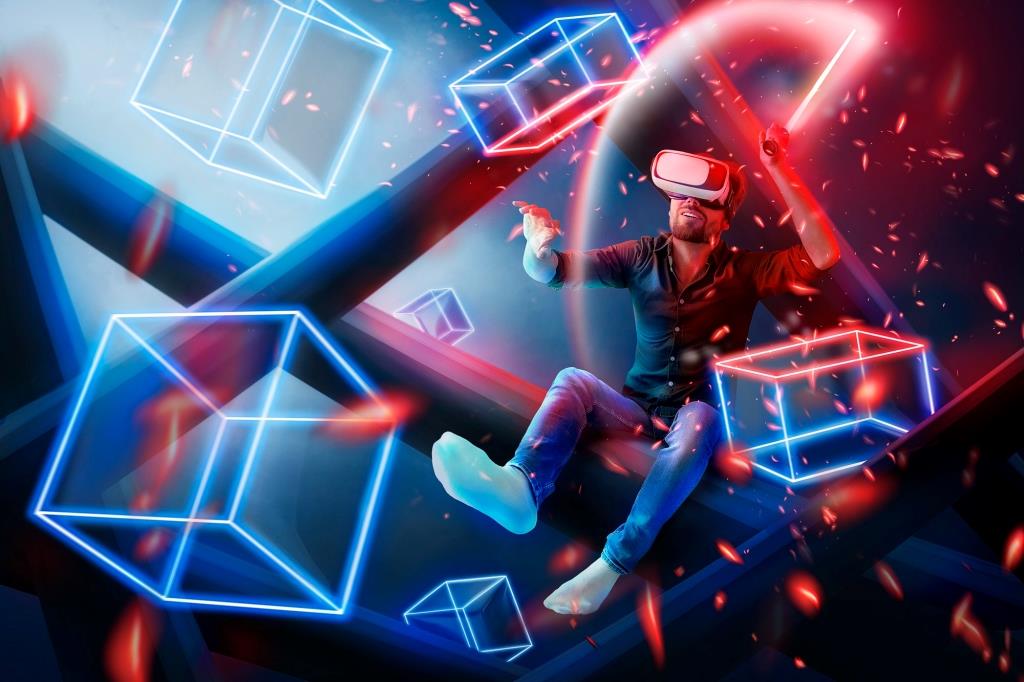
The metaverse is more than a buzzword; it’s poised to redefine how we interact, work, and play online. As a fully immersive virtual environment, it leverages advanced technologies like Virtual Reality (VR), Augmented Reality (AR), and blockchain to create a digital realm parallel to our physical world.
The Metaverse: An Overview
Coined by Neal Stephenson in his 1992 novel “Snow Crash,” the term “metaverse” initially described a dystopian escape from reality. Today, it symbolizes the future of the Internet, offering persistent, shared, 3D spaces where users engage as avatars. Unlike the static interactions of the traditional internet, the metaverse evolves continually, supporting virtual economies and environments that persist even when users log off.
Technological Foundations
Virtual Reality (VR) provides the infrastructure for immersive experiences, allowing users to explore simulated environments as if physically present. Devices like Oculus Quest and Valve Index enable this immersion.Augmented Reality (AR) overlays digital information onto the real world, enhancing our physical environment with smart glasses and mobile devices. AR’s integration into daily life makes it a critical component of the metaverse.Blockchain Technology ensures secure ownership of digital assets through NFTs (Non-Fungible Tokens) and facilitates transparent transactions, fostering trust in the metaverse’s economy.
Applications Across SectorsEntertainment: Virtual concerts and events attract millions, exemplified by Travis Scott’s Fortnite concert.Education: Institutions use VR for interactive learning, improving engagement and retention.Healthcare: VR aids in surgical training and patient consultations, enhancing medical precision.E-commerce: Brands create virtual stores and immersive marketing campaigns, revolutionizing customer experiences.Business Implications
New Market Opportunities: Businesses can reach global audiences, offering virtual try-ons and digital goods.Remote Work: Virtual offices replicate physical workspaces, fostering collaboration and productivity.Product Development: Digital twins and virtual prototyping accelerate innovation and reduce costs.
Social and Ethical Considerations
Privacy: Immersive tech requires stringent data protection measures.Accessibility: Ensuring inclusivity and bridging the digital divide is paramount.Regulation: New laws must address the unique challenges of the metaverse.
Future Directions
Interoperability: Standardizing protocols will allow seamless transitions between different virtual worlds.Sustainability: Blockchain’s evolution towards energy efficiency aligns the metaverse with global ecological goals.Emerging Technologies: AI and XR advancements will enrich user experiences and broaden accessibility.
Preparing for the Metaverse
Businesses must strategically plan their entry, invest in relevant technologies, and establish a strong virtual presence. This involves understanding audience needs, leveraging VR, AR, and blockchain, and creating engaging, personalized experiences.
ConclusionThe metaverse is set to revolutionize digital interaction, offering unprecedented opportunities for innovation and engagement. By addressing ethical concerns and ensuring technological interoperability, we can harness its full potential, transforming not only how we connect and interact but also how we live our digital lives.
For a deeper dive, read the full article: How the Metaverse Will Transform Our Digital Lives







